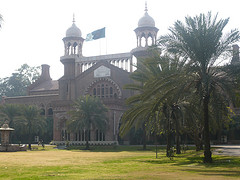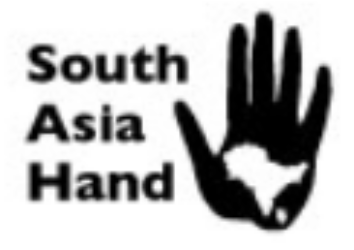The Ray Davis Case – Kicking the Can, Again

March 14: The much anticipated deadline the Lahore High Court set for the Pakistan government to clarify its position on the diplomatic immunity of CIA contractor Raymond Davis has come and gone, and once again Islamabad has been unwilling to take a stand. Six weeks after he shot two Pakistanis he accused of trying to rob him, Davis remains in a Lahore prison and faces trial for murder.
In this fresh episode of its continuing effort to kick a dangerous can down the road, the government reportedly told the high court that its foreign ministry had not clearly stated that Davis was entitled to the immunity Washington has outspokenly insisted he enjoys. In another instance of can-kicking, the high court then ruled that the immunity issue could be decided by the lower court that tries him.
Islamabad’s decision, or non-decision, should come as no surprise. Any plausible legal arguments it might have marshaled for giving Davis the diplomatic immunity it seemed originally inclined to allow would have been undercut by contrary views expressed by authorities with strong standing to make them. Former Foreign Minister Shah Mehmood Qureshi went public on this score soon after he was ousted from the cabinet apparently because he didn’t agree that Davis qualified. More recently, twenty retired Pakistani ambassadors led by the much respected Riaz Khokhar, who served as foreign secretary and ambassador to the United States, issued a carefully documented statement in which they concluded from their reading of the Vienna Convention on Diplomatic Relations that “the U.S. claim…rests on very flimsy ground and cannot be accepted.”
The ambassadors base their challenge to Davis’s diplomatic immunity primarily on two issues. First, the paper trail: there is apparently a dispute between the United States and Pakistan concerning the timing and completeness of the United States declaration to Pakistan that he was a member of the U.S. Embassy’s administrative and technical staff. Second, lurking not very far in the background and explicitly mentioned in the ambassadors’ letter, is the issue of abuse of diplomatic immunity. This is a familiar issue from other “spy wars,” but the normal way of dealing with it is for a few people to get expelled and for the relevant intelligence agencies to work out their relationship by indirection and behind the scenes. There are indications that this is happening, but political and popular passions have been unleashed that may not easily be put aside even if the intelligence agencies reach their shadowy agreement.
The ambassadors also suggest that the immunity claim could be adjudicated by the International Court of Justice. This sounds like yet another can being kicked down an even longer road – but putting this issue in the hands of a court that is neither American nor Pakistani could in principle give both the United States and Pakistan a way to live with the decision.
Davis’s immediate future does not look promising. Although reports still circulate about a deal between Washington and Islamabad for his release, perhaps including the payment of “blood money” compensation to the relatives of the victims, the weak and vacillating government of Asif Ali Zardari surely recognizes the popular furor this would excite. Our findings in Islamabad and Lahore last month suggest that the passage of time is unlikely to lead the Pakistani public – or the political opposition – to take a less outraged view should Davis be freed.
If he is not freed and the trial proceeds, there will be deep disquiet on the American side at a U.S. government official standing trial for a capital offense with the underlying facts still murky. There will be real questions about whether a defendant already so resoundingly convicted in the court of public opinion can be given a fair trial. Banners around Lahore calling for his hanging will intensify this gut-level American reaction.
In their letter, the Pakistani diplomats declared that “Pakistan and the United States share important common interests, in particular the promotion of peace and stability of Afghanistan and of the wider region and need urgently to work together [to further these interest]. The ‘Raymond Davis’ case should not be allowed to jeopardize this cooperation or their mutually beneficial relations in other fields.”
We could not agree more. Pakistan can make or break the peace and stability of the region, and strong relations with it remain a vital element in U.S. policy there. Washington and Islamabad need to work quietly together to avoid another breakdown in bilateral relations similar to those in 1965 and 1990. They should focus less on the Davis case and more on the broader problems that the case has symbolized and heightened.
At the top of any list of these problems is the thorny nature of the relationship between the CIA and Pakistan’s directorate of Inter Services Intelligence (ISI) in efforts to counter Islamic terrorist forces in Pakistan and Afghanistan. Press reports suggest that the two intelligence agencies are trying to deal with this highly sensitive issue. We hope these accounts are correct.
Howard and Teresita Schaffer

